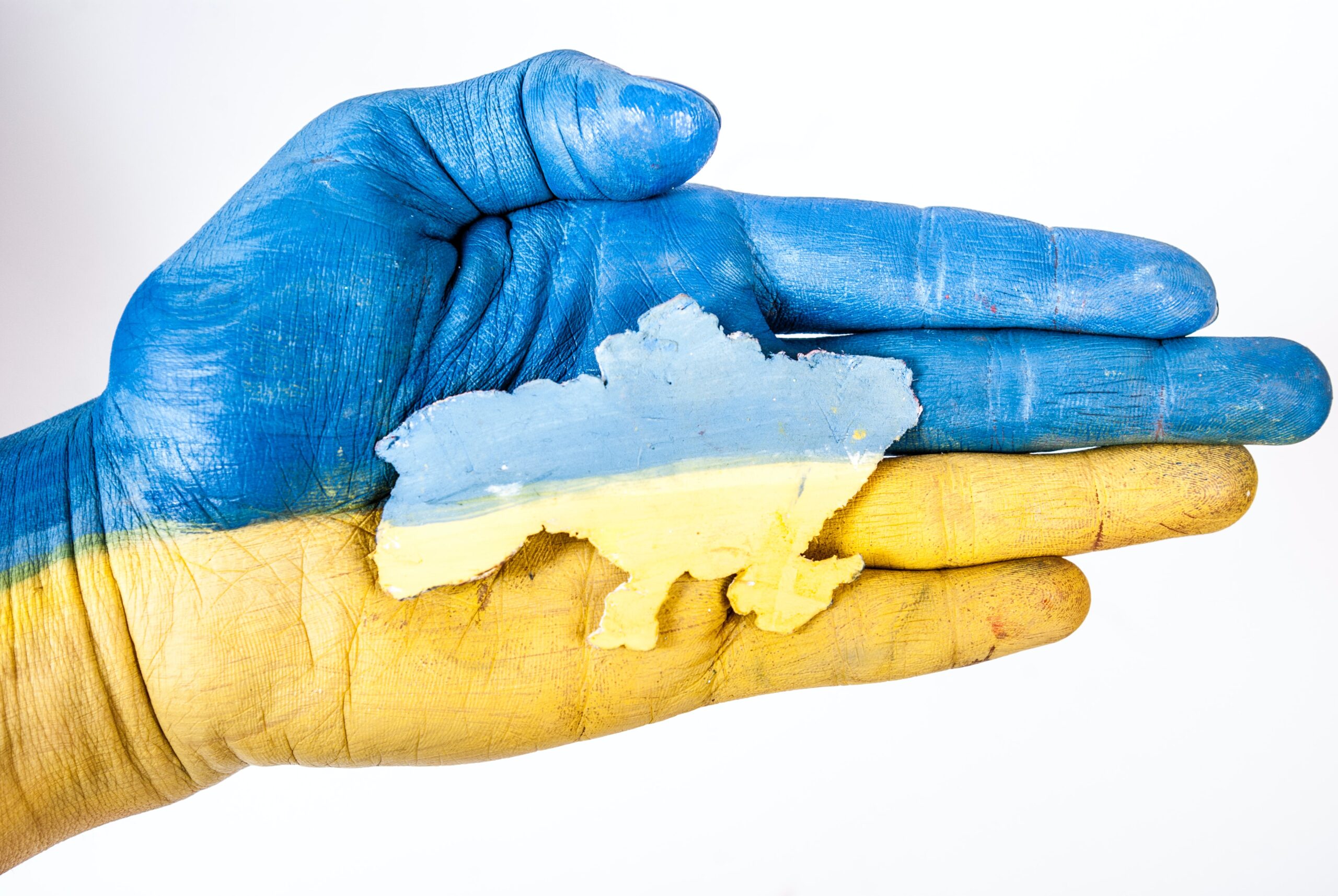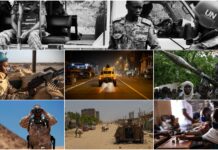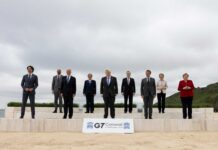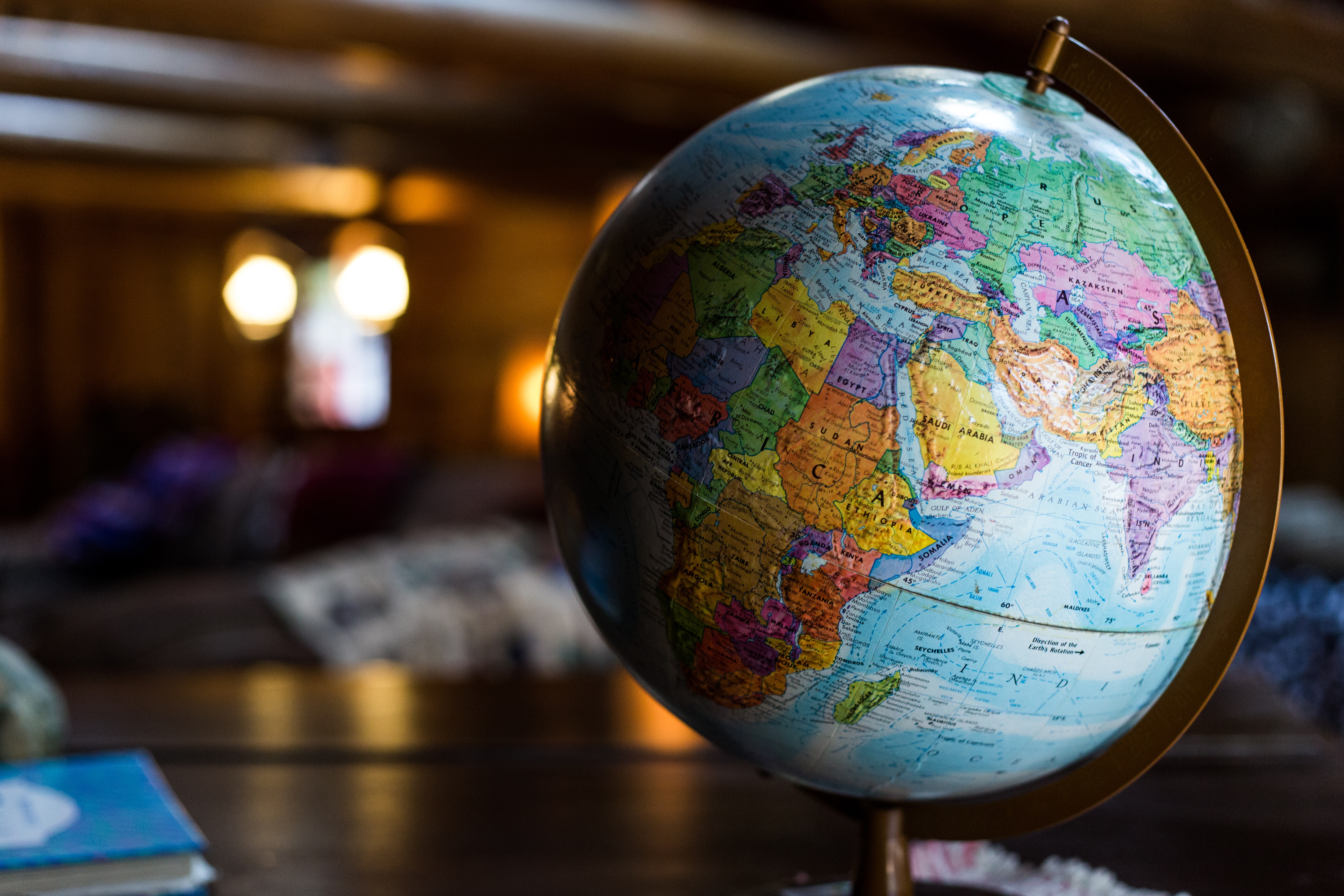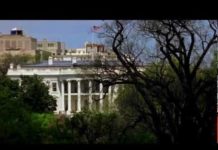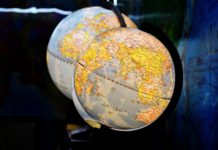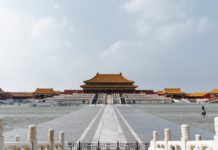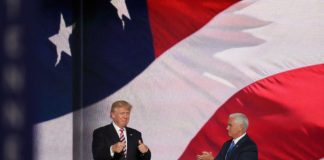In this entry, International Portal provides a brief account of the world in 2017 and what to expect in 2018. This is not a comprehensive or exhaustive examination but an attempt at covering some of the most prominent geopolitical developments of the year to help you navigate these uncertain times.
Africa
Mugabe out, Mnangagwa in
On 22 November, Robert Mugabe resigned as President of Zimbabwe after a military take over and an eight-day political crisis as he lost his grip on the country and the ruling Zanu-PF party. Former Mugabe’s vicepresident and protégé Emmerson Mnangagwa has succeeded him in power effectively ending more than 35 years of Mugabeism and generating expectations of a transition to a new, more democratic Zimbabwe. The new order has been accepted by the international community but 2018 will prove key to determine if Mnangagwa is capable of delivering free elections and much needed economic and political reforms (Read International Crisis Group’s latest report on Zimbabwe).
SA’s ANC elects a new leader
In South Africa, Deputy President Cyril Ramaphosa has been elected leader of the ruling African National Congress (ANC). Ramaphosa is a former Trade Union leader turned businessman who has promised to curb corruption and return the country to the path of economic growth. Investors rallied on the news as Ramaphosa is now set to become the next President of South Africa at the 2019 elections. The image of the ANC has worsened considerably under the tenure of Jacob Zuma as the current President is facing tens of charges of corruption and money laundering.
Secessionism resurfaces
2017 has seen a surge in secessionist sentiment in a number of countries across Sub-Saharan Africa. In Cameroon, English speaking communities who feel marginalised by the French-majority population and central government are making demands that straddle from greater autonomy through to all-out secession. Meanwhile, Nigeria has seen a resurgence in Biafran separatism more than 50 years since the Civil War, and in Kenya the post-elections stalemate has resulted in demands for political reform while also leading to heightened Western Kenyan breakaway sentiment. The African Union has vouched to watch the situation closely in 2018, a year in which more than a dozen countries will hold elections, including the DRC, Mali, Madagascar and possibly Zimbabwe.
Americas
In Trump’s own words
In his opening statement at the UN General Assembly in September, and after threatening to rain ‘fire and fury’ over the North Koreans, President Trump called Kim Jong-un ‘rocket man on a suicide mission’. Then he called the nuclear agreement with Iran an ‘embarrassment’ in what was the ante-sala to his decision to decertify the deal. Later in November he addressed a poignant tweet to British Prime Minister Theresa May over the issue of terrorism and Islam, and he has relentlessly openly criticised the special investigation into Russian interference in the 2016 election. But most controversial of all was his announcement ‘to officially recognise Jerusalem as the capital of Israel’.
His much-awaited National Security Strategy, published in December, raises many questions over the future of US foreign policy and the country’s role in the future world order. The document transposes Trump’s campaign ‘America First’ slogan into a world vision guided by ‘principled realism’. Susan Rice, President Obama’s national advisor, has called the strategy a ‘dramatic departure’ from decades of US foreign policy, concluding that it reflects ‘an insular, ideological treatment of our complex world, substantially unimpaired by facts and dismissive of US interests’. If 2017 tested the new President’s resolve, 2018 will prove decisive for the US, its allies and the world.
Swinging Latin American politics
Latin America continues to undergo substantial change, with Argentina and Chile transitioning from leftist to pro-market leadership. Prospects look cautiously brighter for Argentina following President Mauricio Macri’s firm win at the mid-term elections in October, which have dissipated any chance of a medium-term leftist comeback and can give momentum to economic recovery. In Chile, pro-business Sebastian Piñera has succeeded centre-left Michelle Bachelet as President following elections held in December, signalling a shift to growth-centric policies over the next four years.
The situation looks more ambiguous in Brazil where political scandals surrounding centre-right President Michel Temer are slowing the pace of reform ahead of presidential elections in October 2018. In Mexico, the leftist Andres Manuel Lopez Obrador is leading the polls ahead of the July 2018 general elections, in what represents a reverse of the political trend seen in South America. Colombia will hold the first parliamentarian and presidential elections since reaching a peace accord with the FARC that gives the latter an automatic right to hold 10 seats in Congress and allows them to campaign for more. Finally, 2018 will prove key to determine whether countries in the ALBA bloc, including Venezuela, remain committed to socialism.
Asia Pacific
Kim Jong-un goes nuclear
North Korea’s leader Kim Jong-un appears determined to obtain a nuclear deterrent. In 2017 alone, the North Koreans have conducted three intercontinental ballistic missile tests and one underground nuclear test. The nation is said to have proven its capability to hit US interests and allies in Asia as well as US mainland territory, although its ability to mount a miniaturised nuclear head onto a missile capable of re-entering the earth’s atmosphere remains uncertain.
The UN Security Council has reacted by approving three new rounds of sanctions but China – who has voted in favour of the new rounds – has resisted imposing a total economic embargo. War rhetoric coming out of Pyongyang and Washington will likely remain high in 2018, increasing risks of escalation and miscalculation. Back-stage talks, whether direct or indirect, will prove more important than ever to contain the situation and set the scene for an eventual negotiated outcome.
Rohingya people are dying
2017 took a turn for the worse for Rohingya Muslims in Myanmar, as hundreds of thousands fled the country into Bangladesh and thousands more remain internally displaced following a military crackdown in the Rakhine state. Human Rights Watch has called the persecution ‘an ongoing campaign of ethnic cleansing’ that includes unlawful killings, mass murder and rape. Myanmar’s Army has denied all accusations while justifying the ‘clearance operation’ as necessary to restore security following attacks by Rohingya militants.
Despite US lawmakers pressing for economic and travel sanctions, as of the end of 2017 the US imposed sanctions only against the general leading the operations in Rakhine state and which the Myanmar Army had removed weeks earlier (albeit without a clear explanation or acknowledgment of any responsibility). Pressure has also been growing on Myanmar’s leader and Nobel peace laureate Aung San Suu Kyi, who some see as being part of the problem but potentially also part of the solution.
Xi Jinping’s Philosophy
In late October, China’s President and General Secretary of the Communist Party Xi Jinping became the third president since Mao Zedong to be enshrined in the party’s constitution. Jinping’s “Thought on Socialism with Chinese Characteristics for a New Era” is now recognised in the party’s magna carta as the philosophy that is to guide the 1.3 billion people nation over the next decades. Before him, only Mao Zedong and Deng Xiaoping – China’s 1970s leader who opened China’s economy to the world – had been given such recognition (although in the case of Xiaoping this recognition came after his death in 1997).
Jinping will govern for another five years until 2022, leading the country through a period of significant domestic and international change. Jinping and China will face numerous challenges such as continuing to transition to a domestic-led economy that avoids a hard economic landing, curbing corruption, reigning in escalating debt, and managing the country’s rise from a regional to a global power. China will grow in confidence during this period, asserting itself increasingly more yet at the same time trying to avoid antagonising the US. Whether or not it will succeed is of utmost importance, given the disastrous consequences associated with a potential conflict between the world’s two largest economies.
Europe
To Brexit or not to Brexit
After attempting to use the status of EU citizens in the UK as a bargaining chip, the UK reached a deal in December with EU leaders that will guarantee EU citizens’ rights (and vice-versa) after the UK leaves the EU. The deal also set out that the UK will pay a leaving bill and continue to pay into the EU budget as normal in 2019 and 2020. The deal – which is not binding until a final treaty is signed and ratified – has been sold by the UK government as progress towards an agreeable outcome but behind doors there is talk of humiliation.
British Prime Minister Theresa May and her cabinet remain divided between soft and hard brexiteers, or between regulatory aligners and divergers, but she has ruled out celebrating a second referendum. Experts agree her position is weaker than ever, with many more questioning if she will make it through 2018. The absence of a clear contender, as well as preference for a stable government, means she may still be able to hold on to her post until she delivers Brexit. However, domestic and foreign stakeholders will undoubtedly seek to take advantage of the situation.
The European project lingers on
Victory of the independent centrist and pro-Europe Emmanuel Macron in the French general elections in May, and that of Angela Merkel in the German general elections in September, constituted a breath of fresh air for the European project. However, as of the end of December Merkel had not yet managed to form a coalition government, leaving the European leadership seat vacant. Moreover, the far-right Front National has managed to permeate the French political debate and the islamophobic Alternative for Germany is now the third-largest party in the Bundestag. In Austria and the Netherlands ultranationalist parties have also made significant advances, while European values continue to be degraded in Hungary and Poland. Regarding the latter, the European Commission has initiated a process that could end up with the country being stripped out of its voting rights.
In Spain, the Catalan Government manoeuvred to hold a referendum on independence which the Constitutional Court had previously declared illegal. The Central Government seized control of the autonomous government and institutions and called for fresh elections, leaving behind images of police excess. The judiciary imprisoned a number of Catalan leaders on charges of sedition and a few, including the Catalan President Carles Puigdemont, exiled to Belgium from where he has campaigned for re-election. The snap election held in December resulted in a newly divided Catalan Parliament, presaging very difficult times ahead for Spain.
Terror strikes hard
ISIS-inspired attacks were carried out in several European capitals, continuing the trend of 2016 and taking the terrorism-related death toll to new heights. The UK was worst hit with more than three deadly attacks and another several foiled, followed by Spain’s Barcelona attack in August which also resulted in numerous victims. Failure by intelligence and security services to pre-empt the attacks, as well as the profile of the Barcelona terrorists – who were all home-grown and radicalised in a record time by a local imam – have raised more questions about the ability of the authorities to manage the threat at a time where ISIS has lost its strongholds in the Middle East and foreign fighters are returning home.
Middle East
ISIS bites the dust but it has not been defeated
If 2014 was the year when Abu Bakr al-Baghdadi proclaimed the Islamic State (also known as ISIL, ISIS or Daesh), in 2017 the group was militarily defeated in Iraq and Syria, following the liberation of all areas it previously held in the two neighbouring countries. Hundreds of ISIS fighters are thought to remain trapped, but the numbers could be higher. What the next move will be for the group remains unknown, with most analysts pointing to the transition from a physical army holding territory and population to a looser network of operatives and affiliates in Muslim countries in Northern Africa, the Sahel, Eastern Africa, Central and East Asia.
The group will also likely want to compensate the damage associated with the loss of territory with high-scale, high-profile terror attacks across North America, Europe and Muslim countries. Experts also point to a potential resurgence of Al Qaeda as the group led by Al-Zawahiri moves to occupy the vacuum left by ISIS – this will certainly be the case in Syria, where despite the defeat of ISIS the country remains divided between areas held by the government of Bashar Al-Assad and areas held by opposition militias and Islamist groups, including some with links to Al Qaeda.
Islamic Republic vs House of Saud
The rivalry between Iran and Saudi Arabia for the hegemony of the Middle East reached new heights in 2017, particularly over their proxy war in Yemen and the political crisis in Lebanon. Accusing Iran of meddling in the Lebanon crisis, Saudi Arabia’s foreign minister Adel Al-Jubeir stated that “the kingdom will not stand by and will not hesitate to defend its security”. Meanwhile, Iran has repeatedly stated it is a nation of peace while at the same time accusing Saudi Arabia of creating divisions.
The contest between the two nations is as much geopolitical as it is over religious authority, with Iran backing Shiite minority populations in Sunni-majority countries across the region. It is difficult to predict if the two nations will go head to head in 2018, but the absence of an overarching regional political and security framework makes the prospect of war more plausible. It is also difficult to predict what Israel’s play will be, but its historic rivalry with Iran suggests it will choose siding with the Saudis if it comes down to that.
Israel, Palestine… and Trump
President Trump’s decision in December to officially recognise Jerusalem as Israel’s capital, breaking with decades of US foreign policy, has inflamed Palestinians and led to a generalised international outcry. Such outcry crystallised in a UN General Assembly Resolution – passed by 128 against 9 votes – that declared Trump’s decision “null and void” and refrained nations from transferring their embassies from Tel Aviv to Jerusalem.
To be sure, Trump’s decision does not have any binding implications but it carries a symbolic weight with potential serious practical implications from the point of view of future US foreign policy in the region and the world at large. Similarly, the UN resolution does not change anything from a legal point of view, but it is also very symbolic in that it sends a clear message to Palestine that the UN – at least the General Assembly – continues to support a peaceful resolution of the Israeli-Palestinian conflict that includes an end of the illegally declared ongoing occupation of Palestinian territory.


